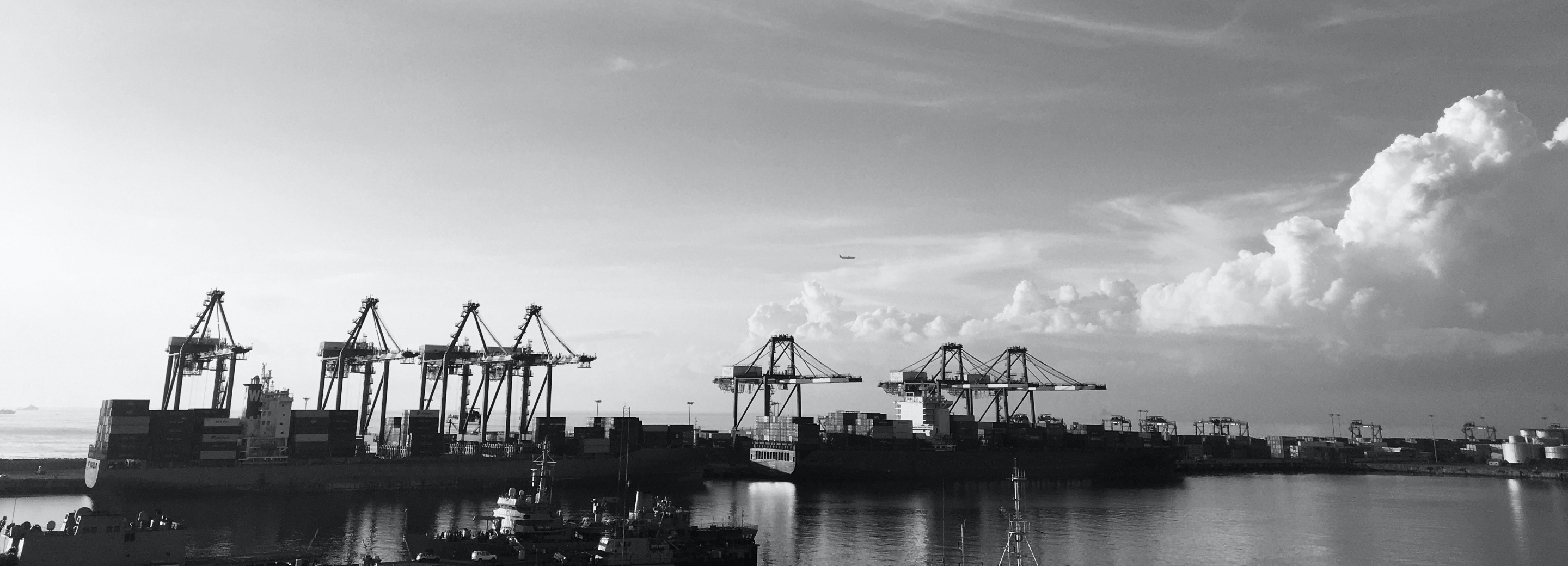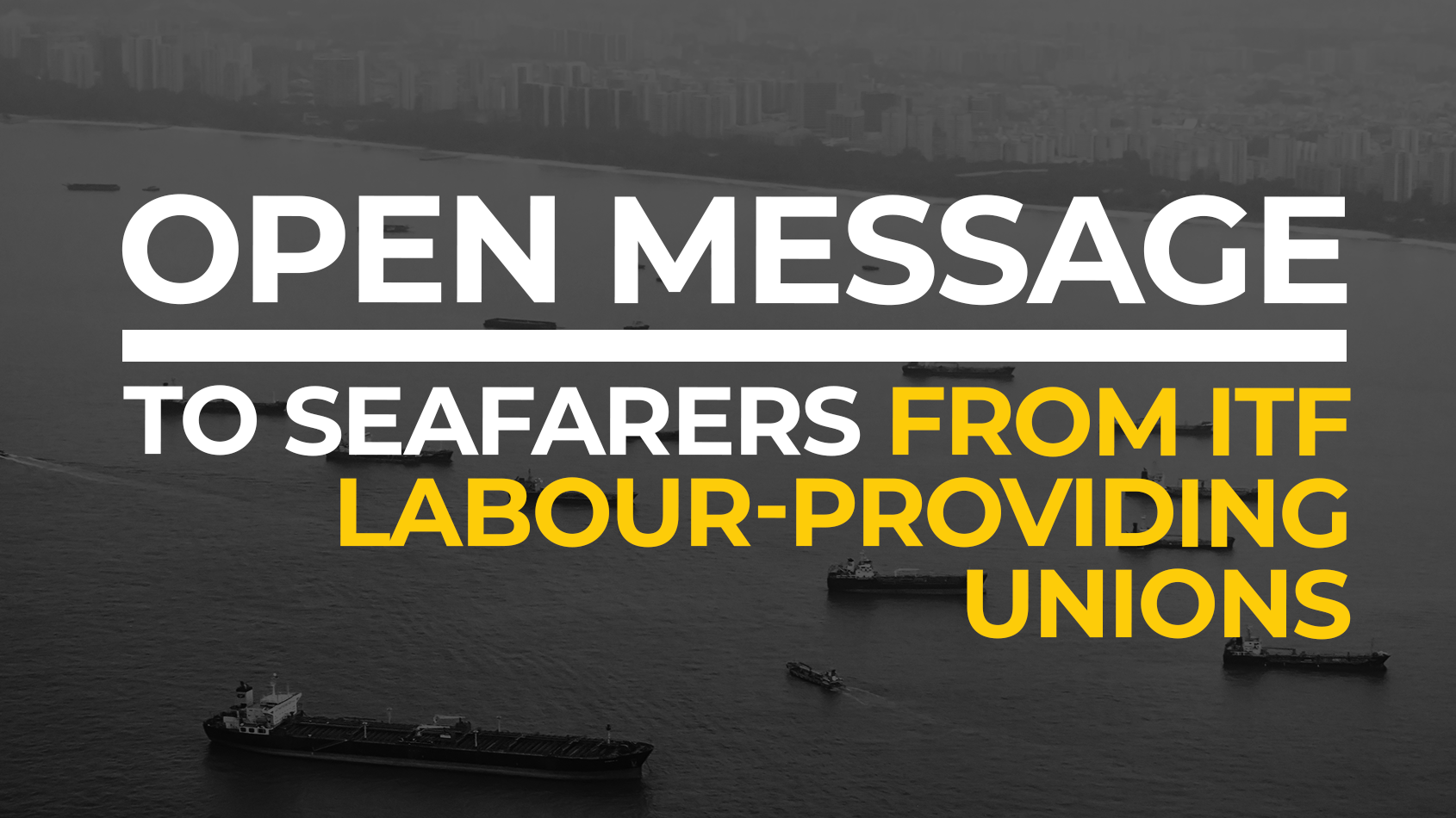
The race to develop a Covid-19 response that controls the virus, protects people and provides relief for battered economies is an urgent priority.
However, as major labour providing unions that represent nearly two-thirds of the world’s seafarers, we are extremely concerned by and frustrated over the lack of understanding the global community has of the challenges faced by the men and women working at sea, and who know feel forgotten by many Governments of the world .
Since the beginning of March the International Transport Workers’ Federation (ITF) and its affiliated unions including ourselves, together with industry representatives and UN specialized agencies, have explored all possible ways to raise the attention of governments, flag states and the general public to the crucial and fundamental role seafarers play in today’s global supply chain and world trade. We have highlighting the need to provide all necessary assistance to facilitate crew changes for those of you who have completed your contracts.
We have taken decisions responsibly, at the time when the virus was peaking, ensuring the world continued to receive the necessary supplies and essential services provided by seafarers.
This was only possible because of the sacrifice of the seafarers – your willingness to continue to support the world’s communities, in most cases many of you had completed or were about to complete your tour of duty. Seafarers like yourself, with the support of your families simply continued to transport the necessary goods without complaint, professionally taking on the challenge, despite being ostracized by many countries that closed their borders and denied access to emergency medical assistance and shore leave.
We welcomed the announcements made by the G20 Ministers at their summit in April 2020, which invited governments to consider seafarers, and other workers, instrumental to the global response to provide the uninterrupted delivery of essential goods. Followed by a powerful and unequivocal message from the UN Secretary General calling on States to facilitate crew change as a matter of priority, recognising the role of seafarers and the difficulties they faced in the current environment.
Dramatic photos of exhausted medical professionals engaged in assisting people hit the global news. As did examples of other key workers continuing with their work, allowing us to carry on with our lives safely and in comfort. With no mention of seafarers, the maritime industry was left to fight against government bureaucracy and not in just one country, but in almost all countries. States passed their responsibilities on to each other, or on to the industry itself making it almost impossible for over 200,000 seafarers to return home, and for their replacements to join ships.
We are Seafarers and we listen to Seafarers. We accept your frustration for not receiving the recognition you deserve for the work you do to keep the global economy moving. We accept the criticism that at times has been expressed when the frustration and anxiety has reached a tipping point because you are unable to leave or join the ship, and for the repeated exemptions of the maritime instruments that regulate your safety and well-being. We hear you and we will continue to support you as best we can.
It is alarming that even countries where the vast majority of seafarers come from have failed to develop a robust and practical plan to facilitate a prompt/swift return home of their seafarers, or to send them on ships. Countries whose economies benefit from the placement of seafarers on ships in international trade via the income the seafarers bring home. Too little was done and not sufficiently co-ordinated to address the mass of seafarers that have to return or leave to join ships. These countries should be leading the global response to address the issue of crew change. These countries have the responsibility to stand up for their seafarers, their citizens and say “enough is enough” to the global community, to alert the world to the risk that exhausted seafarers, after months on board without their ships being inspected to verify ships’ safety equipment, is a health and safety hazard Seafarers have rights and your rights need to be respected.
The ITF and its affiliated unions took a decision to draw the line – to not accept blanket exemptions to seafarers’ contracts or ship certifications. We believe that it is irresponsible to force the seafarers to extend their contracts further. The risk of accidents, loss of life, maritime disasters and threats to the environment are too dangerous a reminder for all of us to allow it to happen.
We appreciate the reasons why countries had imposed travel restrictions. There was a clear need to protect the health and safety of their populations against the pandemic. However, in the current climate, with an increasing number of governments attempting to restart their economies, depriving seafarers of their rights by preventing crew change is no longer a plausible excuse. The world needs goods to be transported, and crew changes must happen now. This includes ensuring that more flights start operating since the pandemic has also dramatically affected the civil aviation industry.
Forcing seafarers whose contracts have ended to remain on board further will result in the number of crew changes required to increase exponentially day after day, and by the end of August there will be around 375,000 seafarers in need of replacement. If nothing changes, this will exasperate further the ability to perform crew changes, and this is not acceptable, something has to change now.
Commercial interests cannot be an excuse or reason to condone further extensions of the current regulations and if this is allowed by flag states then they become an accomplice, potentially responsible for accidents, which may occur to seafarers, the ships and the environment along with the P&I Clubs.
We will not accept any discrimination or inequality of seafarers. However, we want to be clear about the ITF and its affiliated unions’ position; seafarers who have finished their contracts, or the extended contracts, and do not agree or want to extend contracts even further, then the ITF and we as your unions will continue to do everything possible to assist you. We are not calling and have not called for work stoppages, and neither has the ITF. But we have said that we will continue to assist seafarers who want to exercise their rights not to extend their contracts and we will stand with them – and stand with you.
